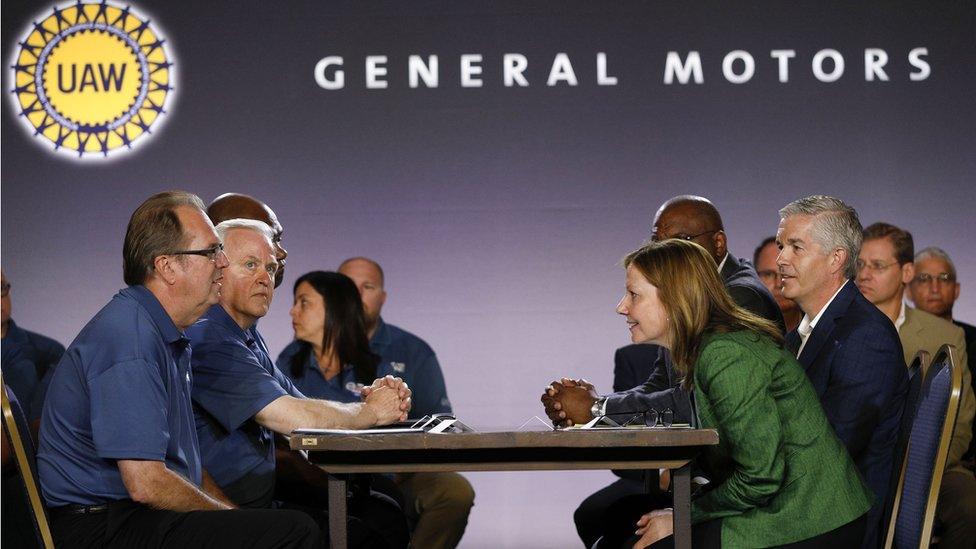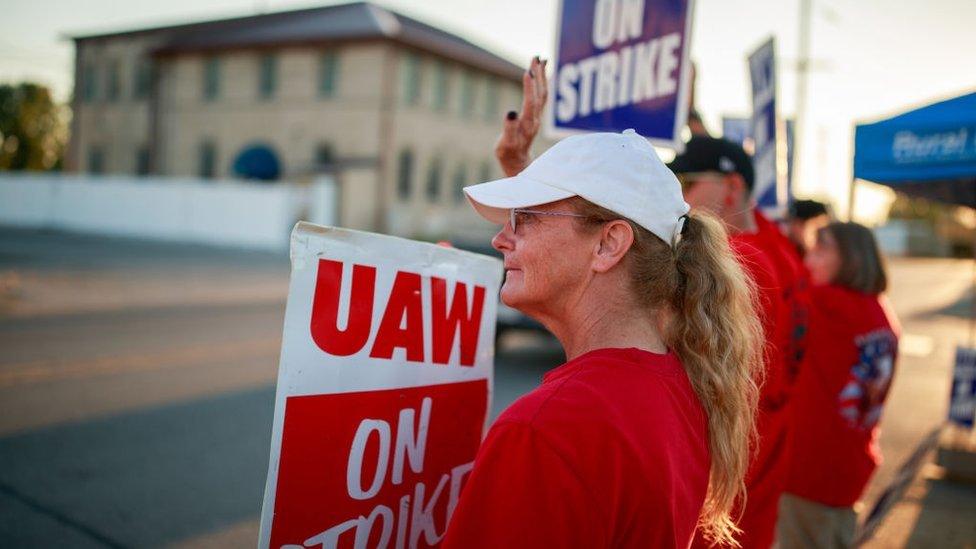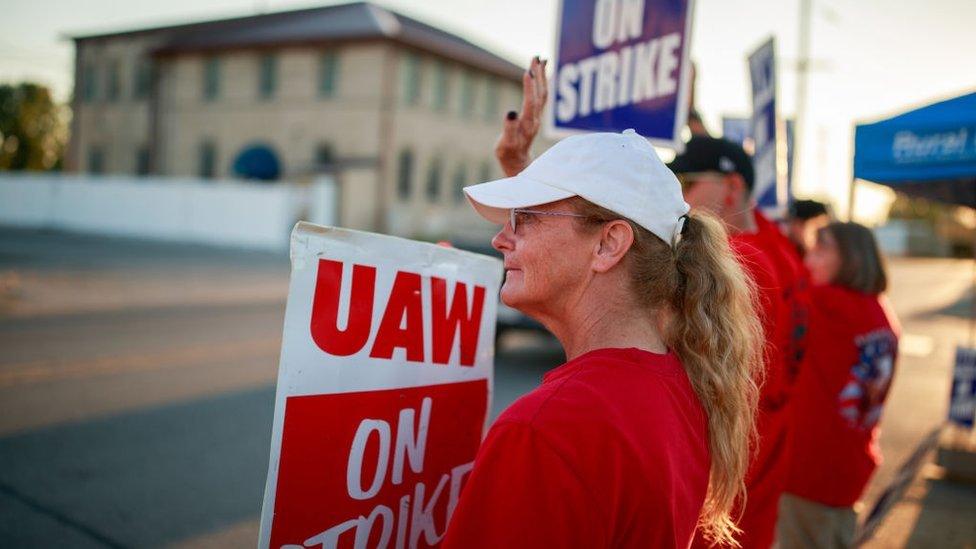GM reaches 'tentative' deal with striking UAW workers
- Published

GM chief Mary Barra (R) sitting across from leaders of the United Auto Workers union
The United Auto Workers (UAW) union has announced a tentative deal, external with General Motors after weeks of negotiations and one of the longest strikes in the company's history.
The four-year agreement, which would cover almost 50,000 workers, signals a possible end to the month-long walkout, which has halted work at factories and cost the carmaker millions of dollars.
The deal remains subject to approval by UAW leaders and its members.
Details were not immediately available.
Negotiations have covered wages, healthcare, profit-sharing and job security.
The union has also been fighting to stop GM from closing car assembly plants in Ohio and Michigan, which the company has said were necessary in response to a slowdown in auto sales.
Union negotiators said the accord included "major gains" for members.
"The number one priority of the national negotiation team has been to secure a strong and fair contract that our members deserve," said UAW vice president Terry Dittes, director of the UAW GM department.
"Out of respect for our members, we will refrain from commenting on the details until the UAW GM leaders gather together and receive all details."
GM confirmed the tentative agreement, but declined to provide further details.

Nearly 50,000 GM workers have been on strike for a month
Necessary response
Shares in General Motors rallied about 2% after the announcement. However, the UAW must vote to end the strike before staff return to work.
The strike started last month after the union's previous four-year contract with GM expired. It is the first stoppage since 2007, when there was a two-day walkout.
GM reported profits of $8bn last year, but it has maintained a focus on remaining nimble, unveiling plans to close existing plants or shift investments, as costs rise, sales slow and the industry shifts to self-driving and electric cars.
However, workers say they have been patient as the car giant recovered from the troubles that forced a government-led bailout in 2009.
At the time, workers agreed to pay caps and to allow GM to hire temporary workers, who receive lower pay. The union had hoped to remove those concessions this time around.
Negotiations started in July, but the two sides failed to reach a deal by September, leading to the strike.
It is the longest in decades and its impact has been felt throughout the Michigan economy.
Analysts estimate it is costing GM about $90m a day. Workers have been relying on strike pay of about $250 a week from the UAW.
Any deal is expected to set the tone for negotiations with other carmakers, including Ford and Chrysler.
- Published13 October 2019
